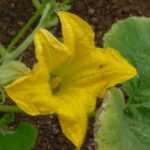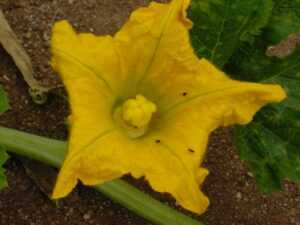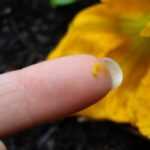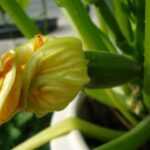Thank you! Thank you! Thank you!
I take great pleasure in beginning this newsletter with our heartfelt thanks to all those who made our Open Day last Wednesday such a great event:
*To S/He in the heavens who controls the weather, for treating us to a beautiful day with mild sunrays, a delightful breeze and great air
*To the Hazel Hill Band with their contagious smiles and genial demeanor, who opened the day with their happy, fun music
*To Talor, who expertly led us on a wild plant foraging walk among the bountiful abundance surrounding our “cultivated” field
*To Matan, who added rhythm, music and lots of fun and joy with his great drumming workshops
It was truly a fine day, and we loved hosting you and the great talents, knowledge and skill of Chubeza community members. We look forward to our next adventures!
And of course – before, during and after – thank you to our wonderful crew who singularly made it possible to host you in our very productive and fertile fields, who cleaned and put together the meeting area and hoisted the shade net in honor of the Open Day. To Gabby, who worked the tractor with so much care and effort; to Majdi and Ali who chopped and dressed and whipped up a steady flow of vegetable nosh for all; and to Mohammed and the Thai Workers Team who harvested and sold the vegetables, thank you all so much!
And lastly, our thanks to you all for coming, young and old from near and far. You delighted us with your shining faces, appreciation and gratitude, with your curious questions, creations in mud, good words and smiles. These days always give us strength to continue and make us happy with our work, which is indeed home, family and friends.
So thanks again to all, and may your Return to Routine be smooth (for only few days, till the next balagan begins…).
Alon and Bat Ami
_________________________________________
This week, you will start receiving our products in new Chubeza boxes! We’ve begun with the small boxes, and the large ones will follow soon. After over twelve years of sending you vegetables in secondhand cartons, we have finally reached the point where we do not have enough boxes to recycle for use. Following deliberation, we decided to graduate! Henceforth, your veggies will be dispatched in our very own Chubeza boxes.
Since we are still very keen on reusing these boxes as many times as possible, kindly leave your empty boxes outside the door on the day of delivery. For your ease and convenience, the cartons are fully collapsible. Just remove the sticker, unfold the cardboard, and keep the carton flat till our delivery person arrives to retrieve it.
Thank you for your cooperation!
___________________________________________
And one last message – a reminder –
Next week, Wednesday deliveries will take place a day early, on Tuesday, May 10th, due to Yom Hazikaron.
_______________________________________

Squash, anyone?
It hasn’t even been two weeks since our journey out of Egypt, and we are now wandering in the parched desert. When I try to picture myself meandering through the wilderness saddled with luggage and relying on the heaven-sent manna, despite its excellent PR, this doesn’t sound like great fun to me. Somehow supernatural fast-food that changes its flavor upon demand may sound tempting for a day or two, but hey, it’s not the real thing, that authentic fresh-grown juicy produce sprouting forth from the land… Yup, I can certainly identify with the Israelites plea: “We remember the fish we ate in Egypt at no cost–also the cucumbers, melons, leeks, onions and garlic. But now we have lost our appetite; we never see anything but this manna!” (Numbers 11, 5-6) Usually they are viewed as ungrateful, ridiculed (“hey, it’s free and you’re complaining?”), and preached at: “The manna was like coriander seed and looked like resin, the people went around gathering it, and then ground it in a hand mill or crushed it in a mortar. They cooked it in a pot or made it into cakes. And it tasted like something made with olive oil…” and yet, I can identify with them. With all the hope and ideals and future in the offing, beginning summer without some juicy zucchini, without its beautiful yellow flowers, sounds too difficult to me. I’m glad we’re done with this wilderness episode.
This week’s newsletter is dedicated to our new squash harvest, happily heralding the changing of seasons from winter to spring and then summer, and the promise in store: the rest of the summer vegetables are lining up to follow! The spring potatoes are plumping up (give them a week or two), mint has renewed itself and come for a visit, and soon such relatives of squash as the fakus will hop on the wagon. The rest of the gang is on their way: the flat bean, green and yellow beans and lubia, eggplant, corn, melon, watermelon, green peppers are all planted and growing in the field.
Squash season starts here at the end of winter. We sow our squash seeds in the beginning of February when it’s still mighty cold. In order to protect them, we cover the earth with a plastic surface, and cover the seeds with another plastic cover to insulate them from the cold. The result is a sort of tunnel that heats up from the sunrays and acts as a shield from the biting frost and any end-of-winter storms. Usually in the first rounds, we use transplants as well as seeds. In the annals of Chubeza, there were years when our first squash crops suffered a mysterious disappearance due to the young sprouts being eaten, probably by crickets or other earthy inhabitants. This was another reason to choose transplants during this season, attempting to outwit the pests.
Despite the relative youth of the plants, after the weather warms up a little and it gets too hot under the plastic, we cover the plants with Agril cloth – a cover made from unwoven material that resembles tablecloths or wipes in color and texture. Agril comes in transparent thin but insulated sheets, which allow sunrays to penetrate, but remain fairly strong. In the winter we use Agril to protect the fragile greens from hail, and in spring we cover the squash and sometimes other family members in their early days, protecting them from insects.
And why do they need protection from insects? These aren’t your average vegetarian insects who need to feast on some squash greens, but rather flies, mosquitos and other fly-by insects who merely wish to land a hand or leg on the squash. The problem is that they aren’t great about handwashing, and therefore transmit viruses and diseases that damage the little squash plants. The viruses and leaf diseases are the worse problems this gourd family encounters, and the squash, fakus, melons and various little pumpkins are most sensitive of all. Which is why we cover them with cloth as they start their lives in the world, just like we would put up a screen at home to prevent flying insects from entering our living space. Once the squash begins to bloom, we remove the cover, because it’s a whole new concert now, and for this segment we do need the humming of flying insects…
So how does squash move from being a green, impressive plant to actually ripening and bearing fruit? Along the way, there are the big and beautiful yellow flowers, lovely to look at and particularly attractive to yellow-loving pests. The squash plant bears flowers of two types: male and female (everything written about squash holds true for pumpkins, cucumbers, melons, watermelons, fakus and the rest of the Cucurbita or gourd family). The flowers resemble each other from afar, but when you look closely, the differences are evident.
This is what the male flower looks like: 
and here it is close up: 
And this is what his female counterpart looks like 
Close up: 
The insects are thrilled by the bright yellow, and they enter the male flower, have their fun and play, and gather some nectar and pollen that look like this:

Then they continue on to frolic in the next nearby playground, the female flower, spreading the male pollen all over. The now-fertilized female flower closes and shrinks, and at the end of the process looks like this:

If you look closely, you will see that at the edge of this flower, a fresh, new little squash is growing. It’ll only take him a few days before he is ready for careful and delicate picking, so as not to scratch or damage the shiny, delicate peel. Squash grow so quickly that we harvest them daily. A squash forgotten on the bush will be discovered a few days later in monster-like dimensions…
So, at the end of the Holiday of Matzah we happily wish you a season of “real” food— the kind that grows and breathes, the seasonal type that you miss when it’s not around, even though it’s not a supernatural food whose taste changes upon demand and is ready-made upon gathering, as if it “fell out of the open skies”…
It’s always great to end with good news and blessings –
Dear Ali is marriying Jihan this coming Saturday – Many good wishes and love from all of us to Ali, Jihan, Muhamd, Muhamadia, Majdi and the rest of the family.
And to Melanie and Aliza, our wonderful translators – Mazal tov for a new grandson and nephew!
May we have a good week, between heatwaves and perhaps surprise raindrops and the upcoming events of the following weeks.
Alon, Bat Ami, Dror, Yochai and the entire Chubeza team
______________________
WHAT’S IN THIS WEEK’S BOXES?
Monday: Green lettuce/curly lettuce, parsley, tomatoes, Swiss chard, cucumbers, onions/leeks, cabbage/ potatoes, beets, squash, celery stalk, parsley root, Free Gift: coriander/dill
Large box, in addition: Scallions, carrots, artichoke/New Zealand spinach
Wednesday: lettuce, parsley, tomatoes, Swiss chard, cucumbers, onions, cabbage/ potatoes, beets, squash, celery stalk, parsley root/scallions.
Large box, in addition: leeks, New Zealand spinach, carrots
And there’s more! You can add to your basket a wide, delectable range of additional products from fine small producers: flour, fruits, honey, dates, almonds, garbanzo beans, crackers, probiotic foods, dried fruits and leathers, olive oil, bakery products and goat dairy too! You can learn more about each producer on the Chubeza website. On our order system there’s a detailed listing of the products and their cost, you can make an order online now!
